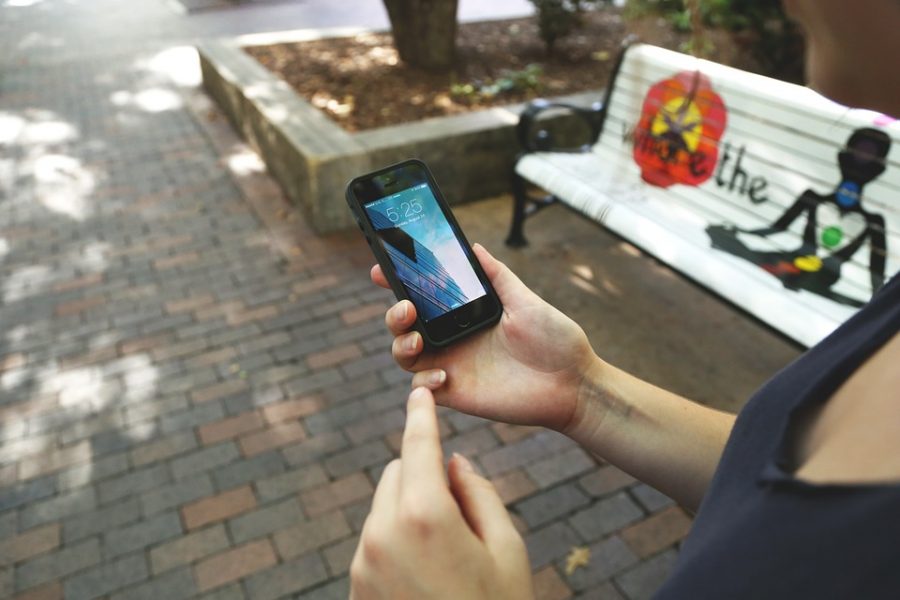In today’s world most people are technologically dependent. Ninety percent of adults own a phone in America. We have apps for everything a person could want: social media, food delivery, dating, videos, music, email, banking, television shows/movies and more. The list could go on and on. We have become zombies because of our phones. We text while walking, we check phones when driving, we have to have it next to us at all times. Phones have become an addiction.
If you don’t think you are addicted to your phone, ask yourself these questions: do you find yourself mindlessly passing time on a regular basis by staring at your smartphone? Do you seem so lose track of time when on your cell phone? Do you sleep with your smartphone on or under or pillow or next to your bed? Do you answer texts, tweets, check Facebook etc. while driving or doing other activities that require focus and attention? Do you feel reluctant to be without your smartphone, even for a short periods of time? Is your phone at the table when you eat? When your phone rings or buzzes do you feel an intense urge to check it?
If you answered yes to some or all of these questions, you are addicted to your phone.
Why is this a problem? A study conducted by addictiontips.net shows many phone addicts experience negative consequences. Many report feeling “phantom vibrations” where they feel their phone vibrate even though it did not. The site also found that people“forget what living in the real world is like.” An average person checks their phone 110 times per day and addicts check their phones as many as 900 times a day. One in three cell phone owners would rather give up sex than their phone. Ninety-five percent of people stated they text, browse, or watch TV in the hour before going to sleep which leads to loss of sleep. This can have consequences such as car accidents, or mental illnesses such as OCD and depression, just to name a few. The most troubling “side effect” of extreme phone use is that it can ruin relationships.
Phones give you access to everything. You are able to see what all your high school friends are doing with their lives, you can see what your ex is up to, you can look up any information you want. This is detrimental to relationships. Not only can you see what exes are doing, but you can get Snapchat pictures from them and have discreet conversations with them. You are able to see pictures of random people you’ve had prior relationships with or just happen to start following. Even if it is “innocent,” the picture or status puts that person in your mind. You are now thinking of someone else you’ve been with instead of your significant other. Contacting them is just a touch away. I know many people who have had their partners cheat on them in part because social media makes it so easy to contact others. Temptation is real and has ruined many relationships.
Technology is great and has many positives aspects. Research is easier to find for school, you can get in touch with friends and family, long distance relationships of any kind are able to communicate, medical research can grow. But when it takes over your life, it can be harmful. I would suggest evaluating your technology habits and consider if changing your ways would make a positive change in your life. Technology is incredible, but real life is more important.


